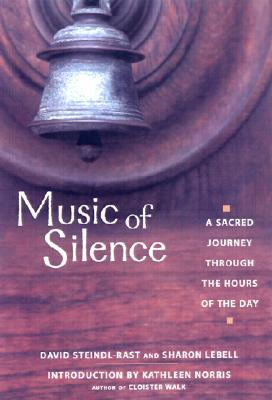
Music of Silence by David Steindl-Rast
Music of Silence: A Sacred Journey Through the Hours of the Day
by David Steindl-Rast and Sharon LebellRatings and Reviews from the Librarians
Cathy rated it ★★★★.

Cathy rated it ★★★★.
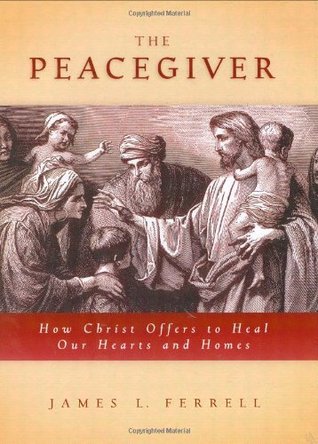
What does the atonement mean, practically speaking? How is Christ the answer to a strained relationship with a spouse, child, parent, or sibling? What if I am being mistreated—how can the atonement help me cope with that? How can I discover the desire to repent when I don’t feel the need to repent? And how can I invite others to do the same? These are the challenging, difficult questions of daily life, questions to which the gospel must provide answers if it is to have living, cleansing, redeeming power.
The Peacegiver is a book about the answers to these questions. Unlike other books about the atonement, The Peacegiver is written as an extended parable. It tells the story of a man struggling, with the help of a loved one, to come unto Christ. In reading the rich details of his often difficult journey, we find ourselves embarked on a personal journey of our own. His questions are our questions; his problems, our problems; his discoveries, our discoveries. Along the way, the truths of the gospel are unfolded with surprising clarity and power, illuminating aspects of the atonement that few of us have ever heard or considered before. These surprising implications show us the way to deep and lasting peace in our hearts and homes.
“My peace I give unto you,” the Savior declared. The Peacegiver explores in a deeply personal way what we must do to receive the peace he stands willing to give.
Cathy rated it ★★★★.
Lorna rated it ★★★★.
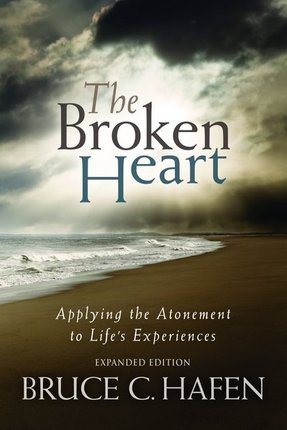
Cathy rated it ★★★★★.
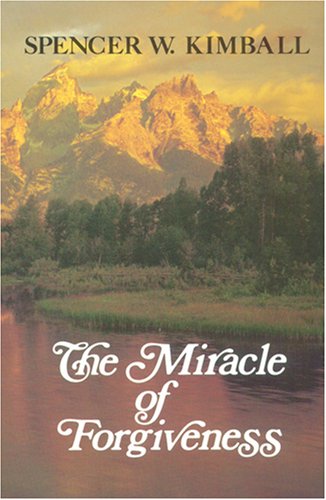
During his earthly ministry, Jesus performed many miracles, including healing numerous diseased and disabled bodies. But perhaps his greatest miracle was the healing of people’s souls—the forgiveness of sin. Jesus offers us that same miracle on the same terms—sincere repentance. In The Miracle of Forgiveness, President Spencer W Kimball gives a penetrating explanation of repentance and forgiveness and clarifies their implications for Church members. His in-depth approach shows that the need for forgiveness is universal; portrays the various facets of repentance, and emphasizes some of the more serious errors, particularly sexual ones, which afflict both modern society and Church members. Most important, he illuminates his message with the brightness of hope that even those who have gone grievously astray may find the way back to peace and security. Never before has any book brought this vital and moving subject into so sharp a focus. This classic book is a major work of substance and power. After, all who does not need the miracle of forgiveness.
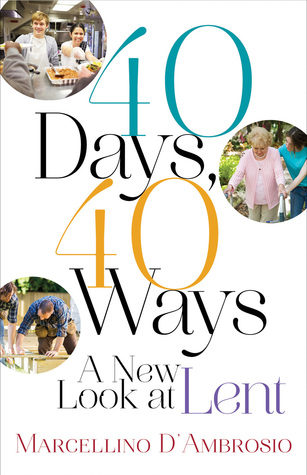
If you’re looking for a new Lenten experience, here are forty fresh ideas. Some will challenge you to deepen your prayer life; others will open your mind to new ways to serve others. Each of the forty ways includes a reflection to help you understand more about Lent and why it matters. You’ll learn how to have a more creative experience of Lent. You’ll discover positive, proactive ways to take action instead of the same old routine of giving something up. The result will be spiritual transformation and a closer walk with Christ—not only during Lent but throughout the year.

Why would a married woman with a thoroughly Protestant background and often more doubt than faith be drawn to the ancient practice of monasticism, to a community of celibate men whose days are centered around a rigid schedule of prayer, work, and scripture? This is the question that poet Kathleen Norris asks us as, somewhat to her own surprise, she found herself on two extended residencies at St. John’s Abbey in Minnesota. Part record of her time among the Benedictines, part meditation on various aspects of monastic life, The Cloister Walk demonstrates, from the rare perspective of someone who is both an insider and outsider, how immersion in the cloistered world—its liturgy, its ritual, its sense of community—can impart meaning to everyday events and deepen our secular lives. In this stirring and lyrical work, the monastery, often considered archaic or otherworldly, becomes immediate, accessible, and relevant to us, no matter what our faith may be.
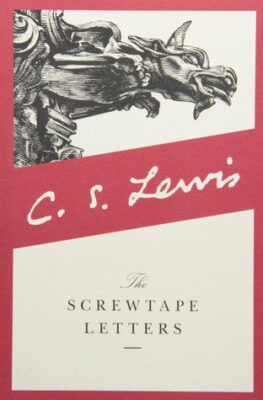
Cathy rated it ★★★★★.
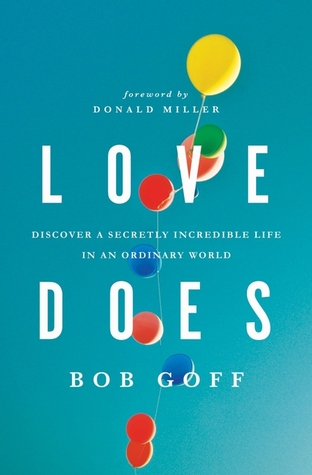
As a college student he spent 16 days in the Pacific Ocean with five guys and a crate of canned meat. As a father he took his kids on a world tour to eat ice cream with heads of state. He made friends in Uganda, and they liked him so much he became the Ugandan consul. He pursued his wife for three years before she agreed to date him. His grades weren’t good enough to get into law school, so he sat on a bench outside the Dean’s office for seven days until they finally let him enroll.
Bob Goff has become something of a legend, and his friends consider him the world’s best-kept secret. Those same friends have long insisted he write a book. What follows are paradigm shifts, musings, and stories from one of the world’s most delightfully engaging and winsome people. What fuels his impact? Love. But it’s not the kind of love that stops at thoughts and feelings. Bob’s love takes action. Bob believes Love Does.
When Love Does, life gets interesting. Each day turns into a hilarious, whimsical, meaningful chance that makes faith simple and real. Each chapter is a story that forms a book, a life. And this is one life you don’t want to miss.
Light and fun, unique and profound, the lessons drawn from Bob’s life and attitude just might inspire you to be secretly incredible, too.
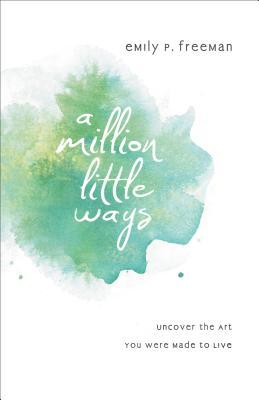
The majority of us would not necessarily define ourselves as artists. We’re parents, students, businesspeople, friends. We’re working hard, trying to make ends meet, and often longing for a little more—more time, more love, more security, more of a sense that there is more out there. The truth? We need not look around so much. God is within us and He wants to shine through us in a million little ways.
A Million Little Ways uncovers the creative, personal imprint of God on every individual. It invites the discouraged parent, the bored Christian, the exhausted executive to look at their lives differently by approaching their critics, their jobs, and the kids around their table the same way an artist approaches the canvas—with wonder, bravery, and hope. In her gentle, compelling style, Emily Freeman encourages readers to turn down the volume on their inner critic and move into the world with the courage to be who they most deeply are. She invites regular people to see the artistic potential in words, gestures, attitudes, and relationships.
Readers will discover the art in a quiet word, a hot dinner, a made bed, a grace-filled glance, and a million other ways of showing God to the world through the simple human acts of listening, waiting, creating, and showing up.
Cathy rated it ★★★.